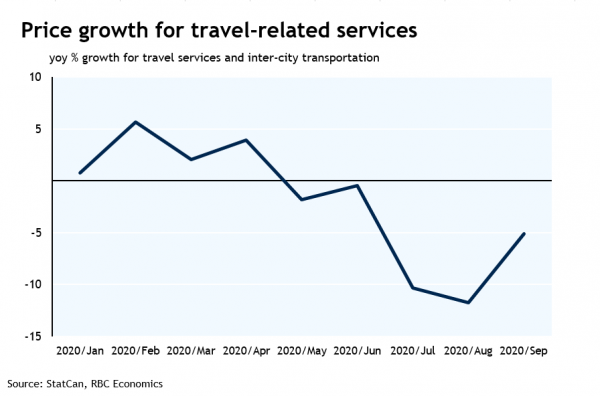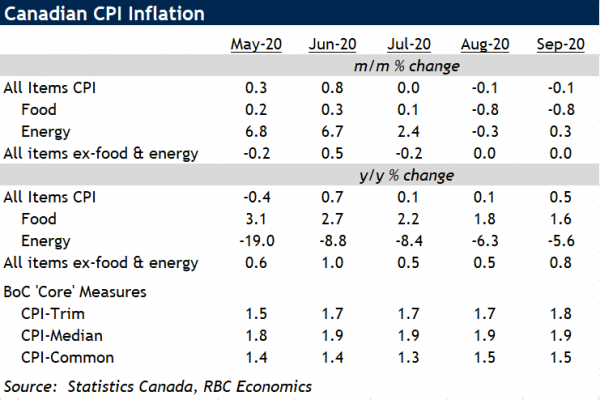- Headline CPI grew 0.5% year-over-year in September
- Bank of Canada’s preferred core measures still below target (but holding up better than expected)
- COVID-related containment measures will keep a lid on economic activity and price growth
Headline consumer price inflation was still subdued in September, but ticked up to 0.5% year-over-year after slowing to just 0.1% in July and August. Growth in food and energy prices continued to offset each other, with the former up 1.6% from a year ago and the latter remaining well below (-5.6%) – both similar to August. Outside of food and energy components, price growth edged up to 0.8% from 0.5% in the prior month. Over the summer, COVID-related disruptions obliterated demand for travel-related services during what is normally a peak tourism season. Prices for travel-related products are normally lower in September, so although year-over-year declines in prices for airfares and travel services were still significant, they were smaller than in the summer. Indeed, by our count, travel services and inter-city transportation combined to add 0.25% back to the change in headline the year-over-year price growth in September. In the meantime, services inflation dialed up sharply to 1.3% from its historical low in the prior two months.
Controlling for the extreme volatility in some price components, the Bank of Canada’s preferred core measures (“trim”, “median”, and “common”) also held up well in September, averaging 1.7% and matching the reading in August. But the resurgence of COVID cases and subsequent reintroduction of some containment measures in Quebec, Ontario and some other regions, though not nearly as stringent as what were in place in April, still pose a meaningful threat to the broader economic recovery and price increases in the near-term. Our current forecast has headline CPI growing just 1.2% in 2020. That benign inflation backdrop is in line with the Bank of Canada’s expectations, and should leave monetary policymakers free to maintain interest rates at exceptionally low levels for the foreseeable future.


